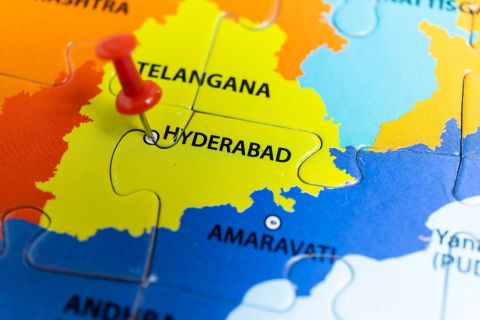Telangana Faces Growing Online Betting Crisis as Prahar Seeks Citizen Input
Telangana was the first Indian state to implement a complete ban on online gaming in 2017. Despite this, the state has witnessed a rapid rise in illegal online betting and gambling, exposing deep flaws in enforcement and regulation. Foreign-owned platforms, anonymous transactions, and unregulated mobile apps have created a sophisticated underground market that remains largely out of reach of authorities.
In 2025 alone, over 3,900 betting-related violations were reported in Telangana. These cases span everything from money laundering to youth suicides, with high-profile endorsements by celebrities and influencers only adding to the problem. Enforcement has become increasingly difficult, hindered by the use of VPNs, foreign servers, and encrypted communication tools like Telegram.
PRAHAR's Citizen Survey: Understanding the Ground Reality
While enforcement struggles to keep pace with the surge in illegal betting, the toll on communities is becoming harder to ignore. From financial ruin to mental health issues, the ripple effects of unchecked digital gambling are being felt across urban and rural Telangana alike. With government action falling short, the need for a more grassroots understanding of the problem has never been more urgent.
Worried about the social and economic consequences of this surge, the advocacy group PRAHAR has launched a statewide citizen survey to better understand public opinion and expectations around the issue. The survey aims to guide future policy and raise awareness about the risks associated with unregulated digital betting platforms, which have become increasingly accessible across the state.
Despite growing concerns, not all online gambling is inherently harmful. Some platforms promote a safer experience by offering tools like spending limits, self-exclusion programs, and access to support resources, efforts highlighted by responsible gambling advocates and initiatives supported by OnlineCasinos.inc. These examples show that gambling can be enjoyed responsibly when the right safeguards are in place.
The Limitations of Prohibition
Prahar’s own studies glaringly show the inadequacy of blanket bans. Their research reveals that even in states with strict laws, illegal platforms continue to thrive. In one study involving 5,000 youth across Tamil Nadu, 75% of participants couldn’t distinguish between legal and illegal gaming platforms, and 86% opposed government-imposed limits on gaming activity. These findings suggest that the real challenge lies not just in enforcement, but in public education and the creation of clear, accessible alternatives.
Telangana’s experience reflects this broader issue: a legal prohibition that lacks practical impact. The absence of a national regulatory framework further complicates matters, allowing illegal syndicates to operate with impunity and even link up with entities threatening national security, according to PRAHAR’s “The Invisible Hand” report.
Listening to the Public
The Telangana survey focuses on three dimensions—awareness, usage, and aspirations. By identifying what citizens know, how they engage with online platforms, and what kind of regulation they support, PRAHAR aims to craft a more responsive and sustainable policy roadmap.
According to PRAHAR President Abhay Raj Mishra, “Our role is to help surface the voice of the people, because when regulation reflects public will, it doesn’t need enforcement. It earns voluntary compliance.” The survey findings, which are expected soon, will be shared with stakeholders across government and civil society to shape a data-informed approach to digital betting regulation.
Conclusion
Telangana’s escalating online betting crisis reflects a national vulnerability that can’t be solved through prohibition alone. As PRAHAR seeks citizen input, the hope is that future regulation will curb illegal activity and empower users to make informed, responsible choices.
